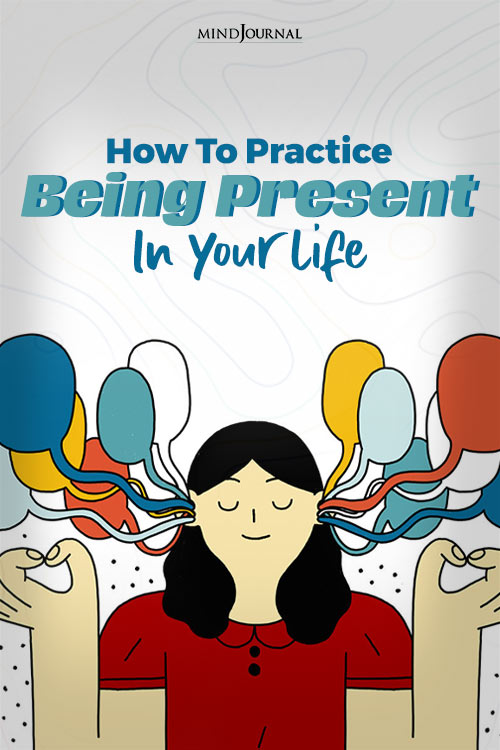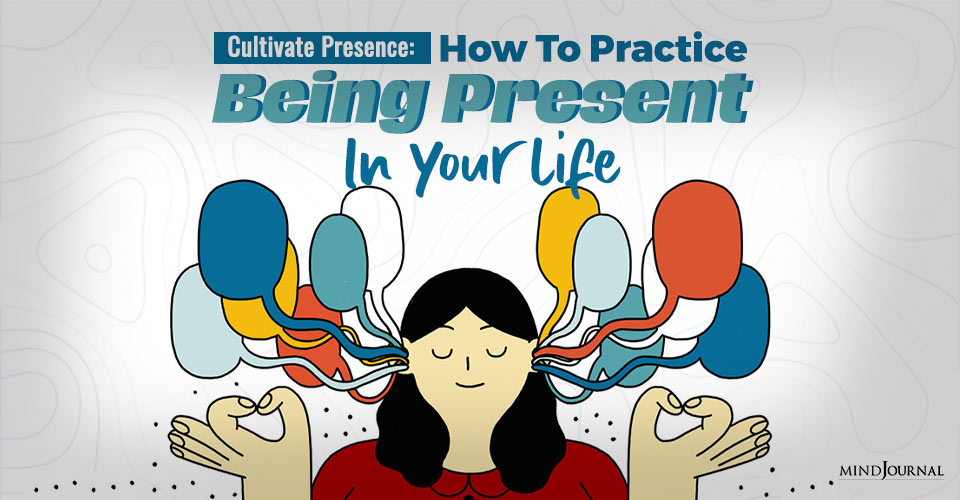Presence can be defined as the power to be more attuned with oneself and be able to express yourself more freely. It’s the magic of presence that helps you connect with your authentic self. Mastering the art of being present takes practice, but it’s an essential key to unlocking the real potential of yourself and being more confident.
When you cultivate being present, people notice and pay attention. You nonverbally communicate your self-worth, that you matter, and expect to be respected. You gain a presence that conveys self-acceptance. It enables you to be open and confident.
Openness requires self-esteem that provides courage and allows you to be authentic and take risks. You’re not interested in hiding who you are or worried about making mistakes and rejection as you would if you’ve suffered from shame and accompanying anxiety and self-doubt.
You won’t bother to convince people or make someone like you. Instead, you listen to others’ opinions, although you may disagree, and associate with friends who do.

Signs of Presence
When you’re present, people can tell and are drawn to you. Your soul shines through. Presence reflects integrity and mindfulness. What are the signs?
- You make eye contact.
- You’re not self-conscious but are fully focused in the present.
- Yet, you’re connected to and aware of your feelings and bodily sensations.
- With another person, you’re able to fully listen without an agenda.
- You accept yourself and are not controlled by fear, shame, or your past.
- You don’t try to fill silences, impress anyone, or seek their approval.
- You’re authentic and don’t hide who you are or your thoughts and feelings.
- You feel equal and connected to others.
- You know who you are and your needs, thoughts, and feelings are separate.
- You don’t react to or defend yourself from others’ opinions.
- You take responsibility for your feelings, words, actions, and triggers with “I” statements.
- You expect to be treated with respect.
- You protect yourself courteously when you feel your boundaries are crossed.
- Your communication is honest, direct, and assertive.
Read: 27 Lessons I Learned In 27 Years To Staying In The Present Moment
How To Be More Present
You can practice presence throughout your day:
- Accept your thoughts, sensations, and feelings without judgment.
- Be mindful throughout the day to replace negative with positive thoughts.
- Notice whether your thoughts and feelings are related to the present.
- Ask yourself, “Where is my breath?” Is it in your chest, throat, belly? Bring it into your belly.
- When you feel pain in the present, don’t reject it. Accept it, and let it pass through you.
- Connect to your senses. Listen to and honor bodily needs and impulses.
- Accept that unpleasant events are learning opportunities to grow.
- Practice gratitude.
- Speak to yourself kindly with encouragement and gentleness as you would a young child.
- Practice mindful meditation.
Developing Self-Acceptance
Self-Acceptance is a deeper level of self-esteem. Meditation and self-love help us practice presence and self-acceptance. There is evidence that high levels of mindfulness correlate with higher levels of self-esteem and more secure self-worth. In a meditative state, we can notice and disregard our self-judgments and anxieties.
Read: How Self Love Is The Key To Codependency Recovery
We can practice presence in that timeless state and learn that moment-to-moment we can accept everything just as it is, including ourselves. This is liberating to us and anyone we encounter.
However, it’s not easy to always function at that level. Without years of practice and healing our past, we soon return to our habitual ways of being. We react and have expectations, frustrations, disappointments, fears, and anxieties.
Being authentic requires that we’re vulnerable. There are many uncomfortable feelings, needs, and states that are part of the human condition. It can be a challenge to be open and accept them all, especially if we have internalized shame.
Practicing a loving presence with ourselves enables us to accept and allow whatever we’re feeling to flow through us without attachment. Doing so can heal us, as our habits and past conditioning wash away. Practicing self-acceptance also helps us to accept and not react to others.
We have opportunities throughout each day to accept, allow, and affirm our real selves. That also means we may express ourselves, make requests, and set boundaries. We’re neither hiding nor emotionally reacting.
Get the Self-Love Meditation.
© 2021 Darlene Lancer
Written By: Darlene Lancer
Originally Appeared On: What Is Codependency









Leave a Reply
You must be logged in to post a comment.